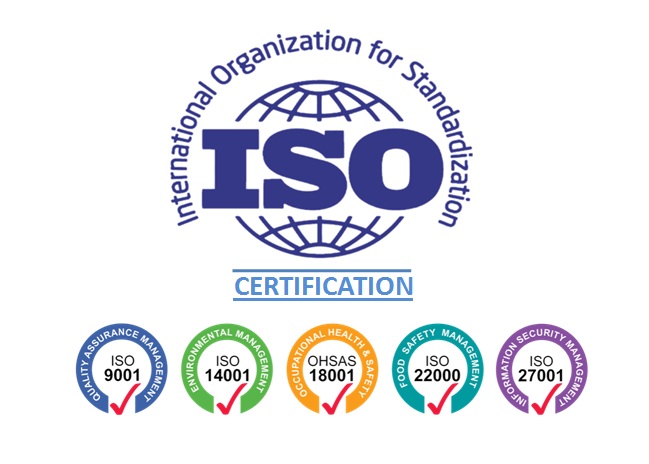ISO Certification
- Transparent fee structure
- Expert financial guidance
- Fast registration process
- Secure document handling
Register your ISO hassle-free from wherever you are with our easy application process.
What is ISO Certification?
ISO certification is a third-party verification that a company or organization meets the requirements of a specific ISO standard. The certification process involves an independent auditing body assessing whether the organization’s processes and systems meet the requirements specified in the applicable ISO standard. If the organization passes the audit, it will be granted an ISO certificate, which is usually valid for three years.
ISO certification can provide several benefits, such as enhancing the organization’s credibility with customers, suppliers, and other stakeholders, improving product quality and safety, reducing costs through improved efficiency, and helping the organization comply with regulatory requirements. However, ISO certification does not guarantee that an organization’s products or services are of high quality, nor does it ensure that the organization will meet all customer needs and expectations.

Documents Required for ISO Certification
The documents required for ISO certification can vary depending on the specific ISO standard being certified. However, here are some common documents that may be required:
Quality manual: This document outlines the company’s quality management system (QMS) and how it complies with the requirements of the ISO standard.
Procedures: These documents describe the steps and processes used in the QMS to ensure compliance with the ISO standard.
Work instructions: These documents provide detailed instructions on how to carry out specific tasks within the QMS.
Forms and records: These documents are used to record data and information related to the QMS and its implementation.
Internal audit reports: These reports detail the results of internal audits conducted on the QMS.
Corrective action reports: These reports document any corrective actions taken to address non-conformities identified during audits or other QMS activities.
Management review reports: These reports summarize the performance of the QMS and provide recommendations for improvement.
It’s important to note that the specific documentation requirements for ISO certification will depend on the ISO standard being certified and the certification body conducting the audit. It’s recommended to consult with a certification body or ISO consultant to determine the specific requirements for your organization.
Frequently Asked Questions
ISO stands for International Organization for Standardization, a non-governmental organization that develops and publishes standards for various industries and sectors.
ISO certification is important for businesses as it provides credibility, assurance of quality, and increased customer trust.
Any business or organization, regardless of size or industry, can apply for ISO certification based on the relevant standards for their industry.
Some benefits of ISO certification include improved efficiency, reduced costs, enhanced customer satisfaction, and increased competitiveness.
It usually takes around 6-12 months to get ISO certification after implementing the necessary processes and undergoing an external audit.
There are various ISO standards available for certification, including ISO 9001 for quality management, ISO 14001 for environmental management, ISO 45001 for occupational health and safety, and many more.
Yes, an ISO certified business can lose its certification if it fails to comply with the relevant standards or undergoes significant changes that affect its processes and operations.
No, ISO certification is not mandatory, but it is recommended for businesses looking to improve their processes and gain a competitive edge.
A business can prepare for ISO certification by identifying the relevant standards for their industry, implementing the necessary processes and systems, training employees, and undergoing internal audits.
Yes, ISO certification can be applied to a specific product or service based on the relevant standards for that product or service.

